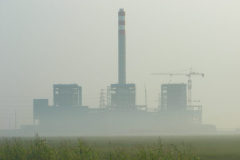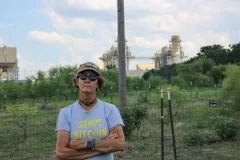- Observers are calling for greater public participation and transparency in Indonesia’s Just Energy Transition Partnership (JETP) deal.
- The JETP investment plan was supposed to be published on Aug. 16, but has been delayed until the end of this year.
- Observers of the energy sector see the delay as an opportunity for the government to involve the public more in the drafting process to ensure justice for all people in the effort to transition away from fossil fuels and toward renewable energy.
- Funding for the $20 billion JETP has been pledged by the G7 group of industrialized nations plus Denmark and Norway.
JAKARTA — Observers are calling for greater public participation and transparency in a $20 billion effort by Indonesia to move away from fossil fuels and toward renewable energy, following the government’s failure to publish the plan for the phased transition in time.
Under the Just Energy Transition Partnership (JETP), signed in 2022, the G7 group of industrialized countries plus Denmark and Norway have committed to providing the funding to help Indonesia in its energy transition agenda. Before the money can start flowing, however, Indonesia has to draft an investment plan that will serve as a guideline for how the money will be used, such as shutting down coal-fired power plants and developing renewable energy.
That investment plan was supposed to be launched to the public on Aug. 16, but has been delayed to the end of this year because the draft didn’t included data on so-called captive coal plants — a category that doesn’t feed into the grid, but instead serves specific energy-intensive industries such as metal processing.
The delay should serve as an opportunity for the JETP secretariat, the government-established body tasked to formulate the plan, to involve the public more in the drafting process, energy policy experts say. This is important to ensure the JETP funding is spent in ways that benefit society and not just specific stakeholders like companies, they add.
In particular, they point to the ramifications of a rushed phaseout of coal plants without adequate protections for those people dependent on them for their livelihoods.
A recent study by the nonprofits Center of Economic and Law Studies (CELIOS) and Yayasan Indonesia Cerah (Bright Indonesia Foundation) shows that the early retirement of three power plants in the provinces of North Sumatra, Central Java and East Java could lead to nearly 5,000 lost jobs. This doesn’t count the multiple small local businesses whose livelihoods are also closely tied to the plants.
The study also found that none of the local governments in the three areas had been actively involved in the JETP discussion, which means there’s no clarity on how winding down the plants there would ensure a just transition for the local people who would be affected.
“These concerns can be mitigated and minimized if the local [governments and communities] are involved,” said Andri Perdana, a researcher at CELIOS.
Another concern is that the JETP funding will not be channeled towards local and Indigenous communities to empower them. For instance, local communities could miss out on the JETP money to build small-scale renewable power facilities such as micro-hydro plants and solar assemblies, even as their costs continue to go down. If the JETP money is targeted mostly at big companies to build large-scale renewable power plants, then the mechanism will mostly benefit the private sector, according to CELIOS executive director Bhima Yudhistira Adhinegara.
The involvement of local and Indigenous communities in the JETP discussion is thus crucial to identifying the potential for developing renewable energy solutions that suit local conditions and needs, he said.
“So there’s no more reason for communities to get sidelined in the energy transition,” Bhima said as quoted by Kompas daily. “They will also hone their skills If they’re given the chance through training. After that, they’re the ones who do the maintenance work if there are repairs needed on the community-scale renewable power facilities.”

Lack of public participation
The lack of public participation in the JETP discussion to date belies the growing public interest in pushing for an energy transition, Bhima said. He cited data from CELIOS showing that 56% of people surveyed from the agricultural sector and rural areas are interested in the early retirement of coal plants coupled with the development of renewable energy.
But “the truth is that, since the very beginning, the discussion on the JETP investment plan hasn’t been opened [to the public] and participatory,” Sisilia Nurmala Dewi, head of the Indonesian chapter of the climate campaign group 350.org, said in a press release.
“While there have been dialogues with civil society, those dialogues are far from being participatory, because they’re held without any disclosure of information regarding the JETP agenda which will be discussed,” she added.
As a result, it’s unclear how much of the public voice has been incorporated into the draft of the JETP investment plan, Sisilia said. The draft investment plan still hasn’t been disclosed to the public, according to 350.org campaigner Suriadi Darmoko, which makes it hard for the public to engage in the JETP discussion in a meaningful way. He added the JETP secretariat doesn’t even have its own website for disseminating information.
Raden Raditya Yudha Wiranegara, a senior researcher at Jakarta-based think tank the Institute for Essential Services Reform (IESR) and part of the JETP secretariat’s working group tasked to draft the investment plan, acknowledged the lack of transparency in the process. This has made it difficult not just for the public to access information, but also for the working group itself, he said.
“[The process needs to be] more





